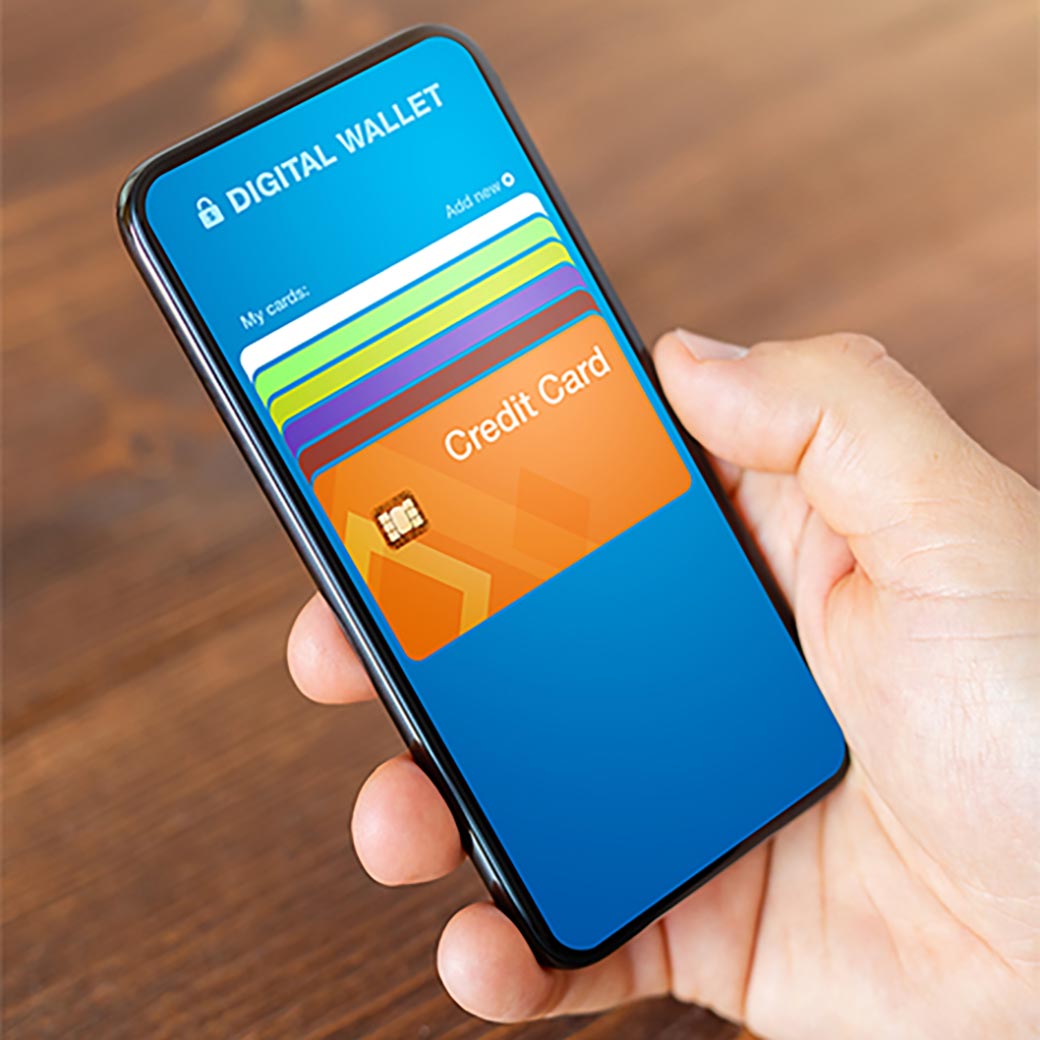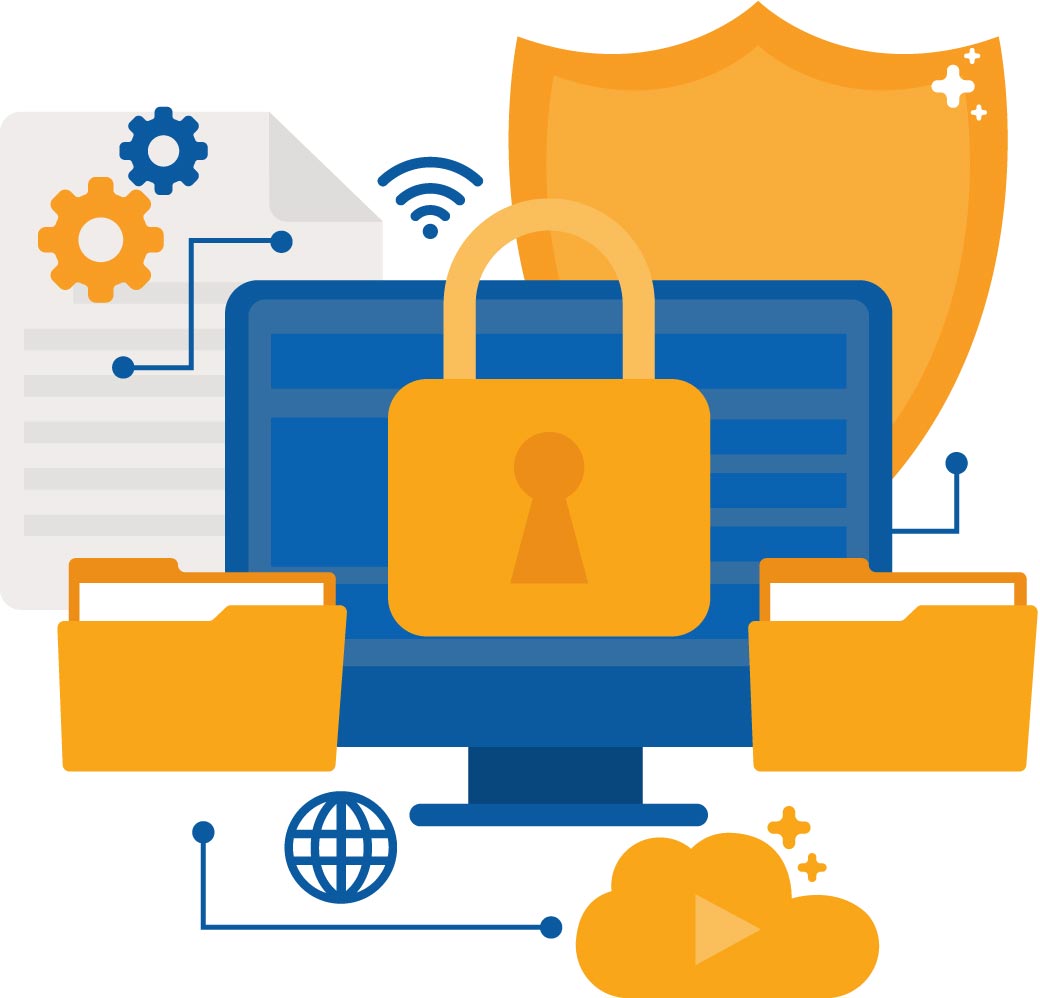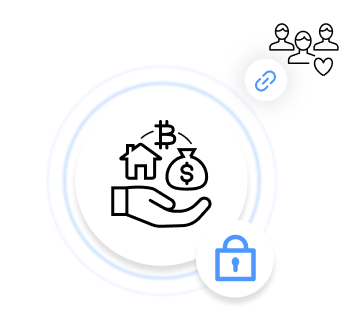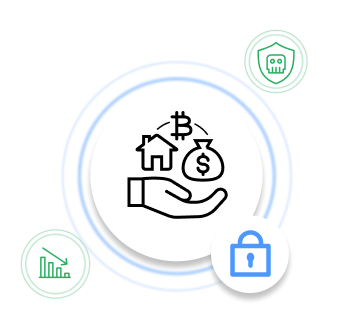
Digital Wallet?
What Is a Digital Wallet?
![]() Store information about digital or financial assets or personal information such as one’s ID card, driving licence or insurance policies.These types of wallets are also often able to store other types of information, such as:
Store information about digital or financial assets or personal information such as one’s ID card, driving licence or insurance policies.These types of wallets are also often able to store other types of information, such as:
- boarding passes
- loyalty and membership cards
- gift cards
- coupons
- tickets, etc.
![]() Make financial transactions.
Make financial transactions.
Some wallets can be used for online or physical payments with regular or crypto currencies.
For example, by paying with your phone or smartwatch in a store, you are using a form of digital wallet.
What types of Digital Wallets are there?
Digital wallets can be divided into several categories based on the actions they allow users to perform.
![]() Closed wallets
Closed wallets
Closed wallets enable users to make online transactions through a mobile application or website. Generally developed and offered by businesses to their customers, these wallets allow users to make transactions only with the issuer of the wallet. Any purchases or refunds go through and stay in the wallet.
A popular example of a closed wallet is Amazon Pay.
![]() Semi-closed wallets
Semi-closed wallets
Semi-closed wallets similarly allow users to make payments at certain merchants. Though they have limited coverage − meaning merchants that accept payments via those wallets must first enter into an agreement with the issuer of the wallet − they generally allow both online and offline transactions.
![]() Open wallets
Open wallets
Open wallets are the least restrictive type of digital wallet. The issuers of such applications are either banks or partnered with banks, and they allow their users almost all types of online and offline transactions. In addition, users can easily transfer funds to someone else’s wallet, as long as the parties have accounts in the same application.
How does a Digital Wallet work?
Digital wallets are easy-to-use applications that are designed to be used on mobile devices. They store all the user’s information, either payment information or personal information and important documents or assets, removing the need for carrying a physical wallet.
When making a purchase, there are different technologies leveraged by digital wallets; they can do the following:
![]() Read QR codes
Read QR codes
By simply viewing a QR (Quick Response) code through the camera of your phone, most if not all digital wallets will open and allow users to make a single transaction, regardless of whether it’s an online or offline purchase.
![]() Use NFC
Use NFC
NFC (Near-field Communication) is a technology that has been present in mobile devices for over a decade now and existed for decades before that. It is simple, yet effective, and allows two electronic devices to connect and conduct a transaction wirelessly.
Do you have a chip that opens the entrance to your home or an access card for your office? Chances are very high that those devices use NFC.
![]() Use MST
Use MST
MST (Magnetic Secure Transmission) is almost the same as NFC in that it allows users to make wireless transactions. The difference is that it uses magnetic waves to transmit information, so it also works with devices that allow you to swipe your credit card, for instance. If your mobile device supports it, the chances are good that almost all popular digital wallets will allow you to use it.
You might wonder, if payment wallets are used for payments, what the value is of wallets that store information about assets and personal documents? These wallets, despite not being used for payments, also provide high value for users.
Apart from the obvious fact that all your important documents are easily accessible 24×7 without being physically with you, these wallets provide many handy additional capabilities, for example, reminding you of the expiration dates of policies, ID documents, and credit cards.
Is a Digital Wallet safe?
Digital wallets are considered safe to use. They are designed with several layers of protection:
- First, your payment method (credit card, bank account, etc.) has its own protection, which most definitely should include two-factor authentication. In other words, before adding your card to a digital wallet, you’re asked to explicitly authorize that action.
- In addition, those applications are usually built by companies who take security very seriously. Working with banks (or being a bank) involves countless security audits and certifications that ensure the processes and practices within the developer or issuer of a digital wallet are secure.
- Digital wallets also have their own customer-facing protection, which involves two-factor authentication as well, be it by email, phone or the built-in capabilities of your device (such as fingerprint scanning, face recognition, and pass codes). If you chose to, you could authenticate every single transaction with those several layers of protection.
- Last, but not least, a mandatory expectation is that the information in digital wallets is securely stored with bank-level encryption.
While digital wallets and the whole ecosystem they are part of is inherently safe, don’t rely solely on someone else to protect your valuable data. Make sure you:
- regularly change your passwords
- use different passwords or passcodes for your device and your digital wallet
- avoid using unsecure networks
- lock your phone or other device when you’re not using it.
How do I get a Digital Wallet?
There are multiple ways to get a digital wallet and start using it.
- If you have a mobile phone or smartwatch, it’s very likely that you already have built-in functionality from the operating system of those devices.
- If there isn’t that functionality, getting access to a digital wallet is as simple as downloading an application of your choice and going through the verification process. After that, you should be able to input your payment information and start using your wallet..
- Most, if not all, digital wallet applications have a website as well, which is accessible through any computer. So another option for getting a digital wallet is to go directly to the website of the issuer from your computer and create an account there.
What is an example of a Digital Wallet?
Digital wallets come in various sizes. Some of the most popular ones you’ve most likely heard of are:
- Apple Pay
- Google Pay
- Samsung Pay
- Amazon Pay
Those digital wallets obviously come from specific issuers that are tied to the software and/or hardware of the device you’re using. There are, of course, other options such as:
- PayPal
- DGLegacy
- Venmo
- Dwolla.
How to choose a Digital Wallet?
There is a huge variety of digital wallet applications available today. You may find it overwhelming when trying to choose one. There are, however, some factors to consider that may help you make the right choice:
1. Check the safety and security features of the applications you’re considering. The more security options you have access to, the better you’ll be protected
2. Be aware of additional charges. With such a dense market in terms of available digital wallets, there are plenty of options that do not involve additional charges when using them.
3. Don’t neglect user experience and the simplicity of registration and use. Verification software has evolved significantly, and there’s no point in using an application that has an unnecessarily complicated verification process.
4. Consider the type of digital wallet and transaction options. It’s always better to go with the application that allows you the most options in terms of usage.
5. It’s never a bad idea to go through the reviews other users have left for each application. People will rarely leave a review if they’re satisfied, but they’re very likely to do so if they’ve faced certain problems.

What are the disadvantages of a Digital Wallet?
![]() Sometimes people struggle with the idea that using a digital wallet is safe.
Sometimes people struggle with the idea that using a digital wallet is safe.
This is not valid only for digital wallets but rather for almost every new technology that comes out. Though security is taken very seriously by the issuers of such applications, you also have a huge responsibility when it comes to best practices to avoid fraud when using your digital wallet
![]() People being used to more conventional payment methods
People being used to more conventional payment methods
is another commonly perceived disadvantage of digital wallets. This, however, is also not valid only for digital wallets; we could say the same thing about other applications, such as your bank’s options for online banking
![]() The limited coverage
The limited coverage
of some digital wallets is a more tangible disadvantage. Whereas most digital wallets can be used globally, there are many that are specific to a certain merchant, group of merchants, or geographical area.
HOW IT WORKS
Protect your loved ones quickly and easily

Set up “alive” event
Crucial for the system's functioning, this step allows us to monitor that you are “alive”, we name it HeartBeat protocol. You have the option to adjust according to your preferences.
![]()

Catalog your assets
Catalogue the assets via DGLegacy, with minimum basic information needed, allowing your beneficiaries to identify and locate them.
![]()

Protect your assets
In case of a cyber security breach in a company which holds your assets, or media alerts for a risk related to its financial stability, DGLegacy will proactively notify you.
![]()

Invite beneficiaries and trustees
To add beneficiaries and trusties you need only their basic contact information - email and name. They will receive an invitational email.
![]()

Detection of fatal event
The Heartbeat protocol of DGLegacy, custom-engineered for your safety, confirms your well-being and detects any unexpected events. We proactively notify your beneficiaries about their designated assets in case of a tragic event.
TESTIMONIALS
Why DGLegacy® is the #1 place to secure your assets
![]()
![]()
CATALOGUE YOUR FIRST ASSET
Protect your loved ones when it matters the most
Join the people who trust DGLegacy® and start protecting your assets now.
 Victor
Victor Vlad
Vlad Ingrid Henke
Ingrid Henke Alara Vural
Alara Vural Agnieszka Michalik
Agnieszka Michalik Stella Schmitz
Stella Schmitz